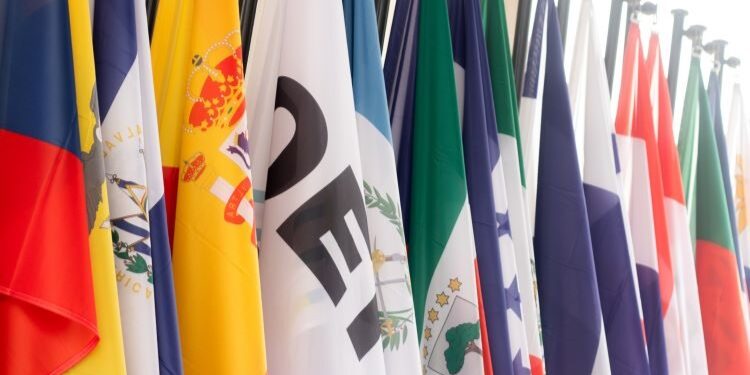The Diplomat
The Organization of Ibero-American States for Education, Science and Culture (OEI) was awarded yesterday with the Princess of Asturias Award for International Cooperation 2024.
The jury, meeting in Oviedo, highlighted that, “since its founding, the OEI has carried out fruitful work in promoting Ibero-American multilateralism.” “On the international horizon it represents a significant bridge in relations between Europe and Latin America,” and, therefore, “the jury recognizes the work done and encourages it for its future development,” it added.
For his part, the Secretary General of the OEI, Mariano Jabonero, expressed his “immense gratitude to the jury for this recognition of the OEI and, also, gratitude to all the Governments of the 23 member countries that, for 75 years, have trusted it.” to help the citizens of the region solve their problems.” “The OEI is fundamentally a valid instrument to work for the development and well-being of the men and women of Ibero-America,” Jabonero continued.
“The OEI family feels very grateful and we have the desire to continue working in favor of the Ibero-American community of nations, as we have been doing for 75 years for a fairer and more prosperous Ibero-America; that is, fulfill our motto of making cooperation happen, make it happen on the ground, make it happen person to person,” he concluded.
The awarding of the Princess of Asturias Award for International Cooperation coincides with the 75th anniversary of the OEI. The organization was born on October 26, 1949 within the framework of the I Inter-Ibero-American Education Congress, held in Madrid, as the Ibero-American Education Office.
In 1954, during the celebration of the second congress in Quito, Ecuador, it was established as an intergovernmental organization. In the period from 1950 to 1965, the organization experienced its period of greatest expansion with the accession of a dozen countries. The last countries to join were Mexico, in 1993, and Portugal, in 2002. It was not until 1985, in Panama City, at the 61st Meeting of the Board of Directors, when the current statutes were approved, which changed the name of the office to organization, and the adoption of Spanish and Portuguese as its official languages was approved.
In all this time, the OEI has consolidated itself as the leading organization of cooperation between Spanish- and Portuguese-speaking Ibero-American countries, with an annual average of 650 cooperation projects in education, science, culture, languages or human rights throughout Latin America, which have directly benefited more than twelve million people on average in the last five years.
Likewise, it is the Ibero-American organization with the greatest territorial presence, having 19 national offices throughout the region (Argentina, Bolivia, Brazil, Chile, Colombia, Costa Rica, Cuba, Ecuador, El Salvador, Spain, Guatemala, Honduras, Mexico, Nicaragua , Panama, Paraguay, Peru, Portugal, Dominican Republic and Uruguay) and a headquarters in Madrid. The last of them, the Cuba office, was inaugurated in 2022.
Since 2016, and in its capacity as regional representative of Latin America and the Caribbean, the OEI has been part of the Global Steering Committee of UNESCO’s SDG4-Education 2030 and, in 2023, it was recognized as an observer body of the United Nations.
In addition, the OEI has been working lately to promote the digitalization of education in Latin America with the help of governments and other organizations, as well as multilateral banks (World Bank, IDB, CAF, among others) through initiatives such as the Ibero-American Digital Transformation Program, launched in 2021, which aims to contribute to overcoming the social gaps that still plague the region today. The organization has also promoted actions that contribute to increasing the productivity of Ibero-America, generating dialogues between the business and academic sectors through its Ibero-American Institute of Education for Productivity, created in 2019.







